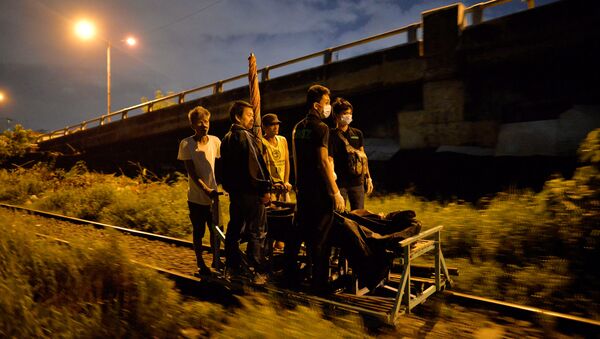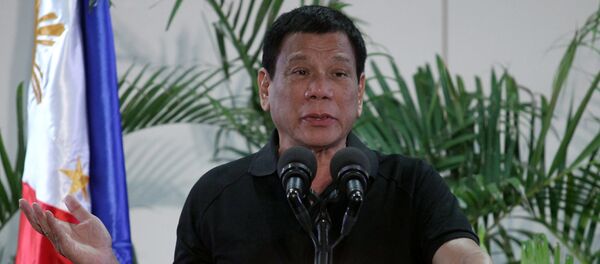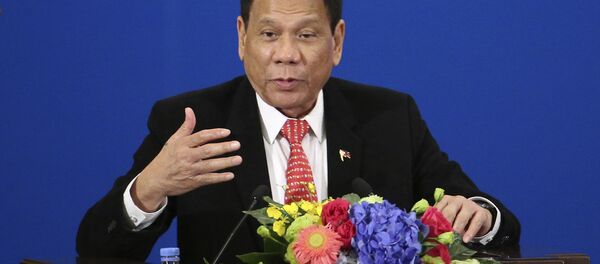Rolando Espinosa Sr., mayor of the town of Albuera in the central Leyte province, was shot in the early morning hours of November 5 after reportedly firing at police officers during a raid on the jail he was housed in. His cellmate was also killed. Police had stormed the Baybay city jail looking for weapons and drugs.
Espinosa was part of a list of more than 160 judges, mayors, lawmakers, police and military personnel Duterte publicly linked to the illegal drug trade in August and ordered to surrender to face investigation, as he conducts an increasingly bloody war on drugs in the Pacific nation. He also ordered the gun licenses of those listed revoked.
Espinosa surrendered to the national police chief shortly after being named and was released, but was arrested again last month after being indicted on drug and firearm charges. His son, an alleged drug lord, was arrested in Abu Dhabi last month.
Some have questioned the official narrative of Espinosa's death, wondering how the mayor and other inmates would have gotten hold of weapons and what would have led them to attack the police from their cells.
"Offhand, I can smell extrajudicial killing," Senator Panfilo Lacson, a former national police chief, told the Associated Press.
"I think that incident is the biggest challenge to the credibility of the [Philippine National Police] that could affect even the other operations involving drug suspects killed under similarly suspicious circumstances," Lacson said in a report by Philippines newspaper The Inquirer. He said he would discuss the possibility of resuming the investigation into the killing when the Senate session resumes November 7.
Just a week earlier, police killed another town mayor and nine of his companions in another gun battle. Samsudin Dimaukom had been mayor of Datu Saudi Ampatuan since 2013. He and his companions are said to have been killed when they opened fire on a team of narcotics police who stopped their convoy for an inspection. Dimaukom’s name was also on Duerte's list.
Duterte has expressed no qualms about the violent crackdown, and his party has pointed to this summer’s tumbling crime rates as evidence that they are only doing what is necessary. However, Western governments and human rights organizations are concerned about the rising body count and the possibility of extrajudicial killings. Human Rights Watch said in August that Duterte's tenure is "a human rights calamity."
Estimates of the death toll in Duterte's war on drugs range from 4,000 to 2,300, the number the country’s national police settled on early last month. Since taking office in June, Duterte has repeated variations of a "shoot to kill" policy regarding drug dealers who resist arrest.





